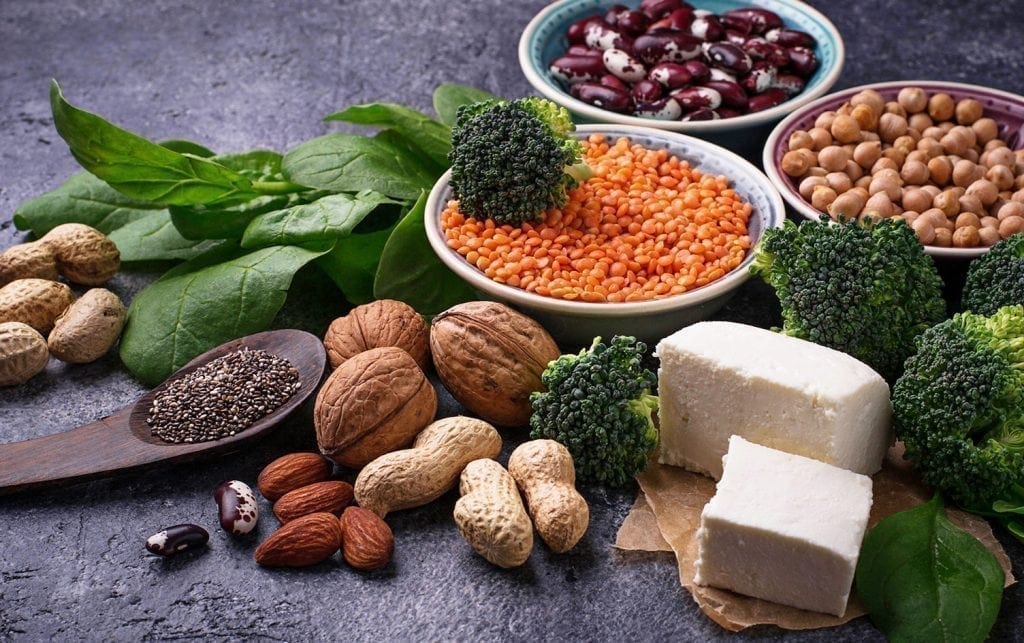Plant Proteins: The Green Revolution in Nutrition and Sustainability

This post is also available in:
This post is also available in:
![]() Español (Spanish)
Español (Spanish) ![]() Ελληνικά (Greek)
Ελληνικά (Greek)
Nowadays, with increasing the consideration of both personal health and environmental sustainability, plant proteins have emerged as an important aspect in a nutritional and ecological revolution. With the demand for alternative protein sources on the rise, plant-based options take center stage. These proteins, derived from plants like soy, legumes (beans and peas), and quinoa, not only offer a nutritious alternative to traditional animal products but also align with a growing awareness of the impact of dietary choices on the world population. The significance of plant proteins becomes more important for health-conscious decisions with a commitment to a greener and more sustainable future. They are one of the key factors for net-zero agriculture in the future as planned in 2050.
Alternative Proteins
Beyond the familiar aspect of meat and dairy, alternative proteins present a spectrum of choices. Among them, plant-based, insect-based, and lab-grown proteins are major choices. These alternatives not only diversify dietary options but also address concerns about the ecological impact of traditional livestock farming. Plant proteins, in particular, take a prominent role, offering a sustainable, harm-free, and ethical solution. As consumers increasingly seek ways to set their dietary choices with broader ethical and environmental purposes, the rise of alternative proteins marks an essential shift towards a more honest and sustainable approach to nourishment.
Plant Proteins
The plant proteins are a combination of diverse sources of plants, each contributing to both nutritional quality and different tastes. Soybean is an excellent source of protein. Raw soybeans have around 36-38% proteins, and they are used to make soy milk, tofu, and soy meats, and also isolated soy proteins are widely used as a dietary supplement. Legumes, including beans, lentils, and peas, provide not only protein but also essential fiber. Mung bean is a good source of protein, with 24-25 grams of protein per 100 grams. Quinoa is a quality protein source, providing a gluten-free food source. These are just a few examples of plant proteins. The isolation of proteins from above plants gives us a very high-quality protein with a rich amino acid profile. Nuts such as almonds, cashews, and hazelnuts provide a rich source of proteins.
The Significance of Plant Proteins
Plant proteins extend their importance beyond individual health to address the important need for global sustainability. Choosing plant proteins can reduce the carbon footprint associated with traditional animal farming. The environmental impact of plant-based diets is significantly lower, from reduced land and water usage to lower greenhouse gas emissions. By going for plant proteins, individuals contribute to the preservation of biodiversity and the health of our planet. Thus, the significance of using plant proteins lies not only in the nourishment they provide but in their role as an oxygen provider for the atmosphere and cooling down the world, promoting a sustainable relationship between nutrition and the well-being of the environment we all share.

Pros and Cons of Plant Proteins
Plant proteins have both health benefits and environmental advantages. However there are some considerations to take into account
On the positive side, plant-based proteins typically contain lower levels of saturated fat, no cholesterol, and reduce the risk of cardiovascular issues. Their higher fiber content supports digestive health and weight management. Furthermore, plant proteins align with ethical and environmental concerns, as they generally have a smaller ecological footprint compared to animal-derived protein sources.
However, careful consideration is needed to address some potential drawbacks. Plant proteins might lack certain essential amino acids found in animal sources, and require dietary planning for a balanced nutrient intake. Additionally, some individuals may experience challenges in meeting specific nutritional needs, requiring a balanced and varied diet.
Protein Quality and Nutritional Profile of Protein Sources
Plant proteins can serve as high-quality alternatives, providing essential amino acids vital for bodily functions. While some plant sources may lack certain amino acids, combining a variety of plant-based foods ensures a comprehensive and balanced amino acid profile. Legumes, grains, and nuts each contribute unique amino acids, complementing one another to meet the human body’s protein requirements. This collaborative method of protein sourcing dismisses the myth that plant proteins are incomplete in amino acid profile. The nutritional profile of plant proteins is also important to humans. They are a rich source of essential vitamins, minerals, and antioxidants. From the iron in lentils to the omega-3 fatty acids in chia seeds, plant-based sources offer a diverse range of nutrients vital for overall well-being.
Extraction Techniques of Plant Proteins
Extraction techniques aim to efficiently isolate proteins while minimizing environmental impact. Modern innovations emphasize sustainable practices, by minimal waste and energy consumption. Modern extraction techniques are frequently researching and testing with the increasing demand for plant proteins. In solvent extraction, solvents help separate proteins from plant material. Another approach is mechanical extraction, involving pressing or grinding to release proteins. Enzyme-assisted extraction utilizes enzymes to break down cell walls, facilitating protein extraction. Additionally, water-based methods, such as aqueous extraction, are gaining popularity for their eco-friendly nature. Each technique offers unique advantages, and ongoing research continues to refine these processes for more efficient and environmentally friendly extraction of plant proteins.

Products derived from Plant Proteins
Plant-based burgers are very popular nowadays. Meat substitutes, like pea protein-based burgers, mimic the taste and texture of traditional meat. Dairy alternatives like soy, almond, or oats, offer lactose-free options with a creamy texture. Plant protein powders have become popular for enhancing smoothies and meals with an extra protein boost. Bakery items, snacks, and even desserts are now incorporating plant proteins for added nutritional value. As consumer demand grows, food scientists continue to explore and create a wide range of plant protein-derived products, expanding options for those seeking sustainable and health-conscious food choices. From improved textures similar to traditional meats to enhanced flavors that satisfy diverse palates, innovation in food technology plays an important role. Techniques such as extrusion and fermentation are employed to create meat alternatives with convincing tastes and textures. Novel processing methods contribute to the development of plant-based dairy substitutes and desserts.
Modern Research in Plant Proteins
Modern research on plant proteins has become a key point, driven by the growing interest in sustainable and plant-based diets. Researchers are exploring novel sources of plant proteins, investigating their nutritional profiles, and assessing their functional properties. Furthermore, investigates the health benefits of plant proteins, examining their impact on conditions such as heart health, diabetes, and weight management. Researchers also explore innovative extraction methods, ensuring efficient and environmentally friendly production. European countries, especially Germany, announced a huge amount of funding for alternative proteins and plant proteins. A major part of that funding is for research and investigations.
Social and Cultural Aspects of Plant Proteins
The acceptance of plant proteins is a complex combination of social and cultural factors, varying across regions and communities. While some societies readily accept plant-based proteins as dietary staples, others show a gradual adaptation. Cultures and religions that eat only vegan diets are already consuming plant proteins, and they would like to eat plant protein-based meat alternatives such as veggie burgers. The rise of plant-based eating is not just a change in what we eat; it shows our cultural narrative around our food choices. As global awareness of sustainability and ethical considerations grows, plant proteins become more significant of a collective effort towards careful and knowledgeable consumption, combining cultural diversity with a shared commitment to health and the environment.
Consumer Acceptance and Preference
Knowing consumer tastes and preferences is the most important for using plant proteins in the food industry. Factors influencing consumer acceptance range from health concerns, such as lower saturated fats and zero cholesterol, to personal taste preferences, such as the meat-like taste in veggie burgers. If consumers recognize the environmental impact of their food choices, a growing preference for plant-based options should take place. Nowadays, more and more people are saying yes to plant proteins. These are things like beans, lentils, and even plant-based burgers. People like them not just because they’re healthy but also because they taste good. It’s like discovering a new favorite flavor that happens to be good for you.
References
Hertzler, S.R., Lieblein-Boff, J.C., Weiler, M. and Allgeier, C., 2020. Plant proteins: assessing their nutritional quality and effects on health and physical function. Nutrients, 12(12), p.3704.
Sá, A.G.A., Moreno, Y.M.F. and Carciofi, B.A.M., 2020. Plant proteins as high-quality nutritional source for human diet. Trends in Food Science & Technology, 97, pp.170-184.
Schweiggert-Weisz, U., Eisner, P., Bader-Mittermaier, S. and Osen, R., 2020. Food proteins from plants and fungi. Current Opinion in Food Science, 32, pp.156-162.










































































